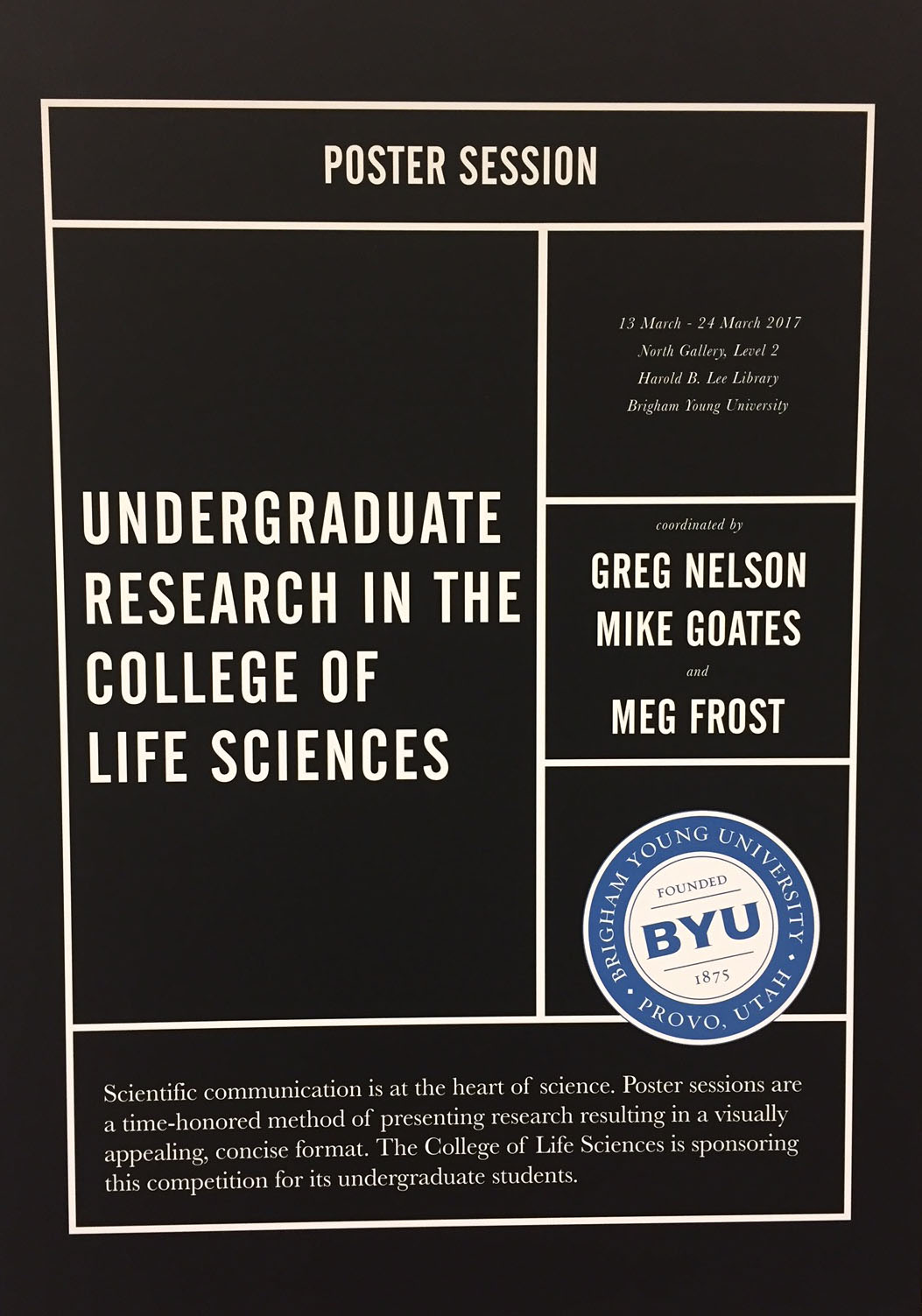Title
The Role of a Mutated Receptor, CCRL2 and its Correlation with a Risk Factor for Alzheimer’s Disease
Files
Download Full Text (701 KB)
Keywords
Alzheimer's Disease; Neuroinflammation; Chemokines
Abstract
Alzheimer’s Disease ( is the most common cause of dementia, which is the 5 th leading cause of death While the exact cause of AD is unknown, many suggest that inflammation could be a culprit 1 Inflammation is driven by our immune system A key component of inflammation is chemokine signaling These signaling molecules help guide immune cells to areas of infection and damage Cells use chemokine receptors to interact with secreted chemokines (Fig 1 Left) Some chemokine receptors are identified as atypical chemokine receptors ( because they have different functions than conventional chemokine receptors in the immune system (Fig 1 One of these ACKRs, CCRL 2 is the focus of our work
BYU ScholarsArchive Citation
Hendrix, Colby J.; Haynie, Christopher J.; Lindsay, Hunter G.; Gonzalez, Josue D.; and Weber, Scott, "The Role of a Mutated Receptor, CCRL2 and its Correlation with a Risk Factor for Alzheimer’s Disease" (2023). Library/Life Sciences Undergraduate Poster Competition 2023. 3.
https://scholarsarchive.byu.edu/library_studentposters_2023/3
Document Type
Poster
Publication Date
2023-03-01
Language
English
College
Life Sciences
Department
Microbiology and Molecular Biology
Copyright Use Information
https://lib.byu.edu/about/copyright/


